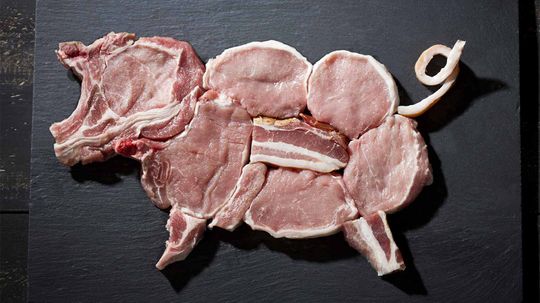When it comes to our diet, making informed choices is crucial for maintaining good health. While raw foods are often associated with a healthy lifestyle, there are certain items that should never be consumed without proper cooking or preparation. In this article, we will explore ten such foods and the potential risks they pose when eaten raw.
The Dangers of Raw Meat and Seafood
Raw meat and seafood can harbor harmful bacteria like Salmonella, E.coli, and Vibrio. These pathogens can cause severe foodborne illnesses such as gastroenteritis or even life-threatening infections. It is essential to cook these proteins thoroughly to kill any potential bacteria present in them.
Avoid Uncooked Eggs
Eating raw eggs may expose you to Salmonella contamination. This bacterium can lead to symptoms like diarrhea, abdominal cramps, fever, and vomiting. To eliminate the risk of infection completely, it’s best to consume eggs that have been properly cooked or pasteurized.
Cook Your Beans Thoroughly
While beans offer numerous health benefits when cooked correctly, consuming them raw can be dangerous due to their lectin content. Lectins are naturally occurring toxins found in many legumes that can cause digestive issues like nausea, vomiting, and diarrhea if not adequately neutralized through cooking methods such as boiling or pressure cooking.
Say No To Raw Potatoes
Raw potatoes contain solanine—a toxic compound that belongs to the nightshade family—which can cause symptoms ranging from mild gastrointestinal distress (such as stomach pain) to more severe effects like confusion or paralysis if ingested in large quantities over time. Cooking potatoes thoroughly helps break down solanine into harmless substances.
Steer Clear of Raw Milk and Cheese
Raw milk and cheese can contain harmful bacteria such as Listeria, Campylobacter, or E.coli. These pathogens can cause serious infections, especially in individuals with weakened immune systems. Pasteurization is a crucial process that eliminates these bacteria while preserving the nutritional value of dairy products.
The Importance of Cooking Mushrooms
Mushrooms should always be cooked before consumption to enhance their digestibility and eliminate any potential toxins they may contain. Certain varieties of mushrooms can harbor toxic compounds that are destroyed through cooking methods like sautéing or boiling.
Avoid Raw Sprouts
While sprouts are often considered a healthy addition to salads and sandwiches, they have been linked to numerous outbreaks of foodborne illnesses caused by bacteria like Salmonella or E.coli. The warm and humid conditions required for sprouting provide an ideal environment for bacterial growth, making it essential to cook them thoroughly before consuming.
Risks Associated with Uncooked Shellfish
Eating raw shellfish poses significant risks due to potential contamination with Vibrio bacteria or norovirus. These pathogens can lead to severe gastrointestinal symptoms such as vomiting, diarrhea, abdominal pain, and dehydration. Properly cooking shellfish reduces the risk of infection significantly.
Cook Your Leafy Greens
Leafy greens like spinach or kale should be cooked rather than consumed raw due to their high oxalate content. Oxalates can contribute to kidney stone formation when consumed in excess over time. Lightly steaming or blanching these vegetables helps reduce oxalate levels while retaining their nutritional benefits.
In Conclusion
While incorporating fresh fruits and vegetables into our diet is essential, it is equally important to be aware of the potential risks associated with consuming certain foods raw. By cooking or properly preparing these items, we can minimize the chances of foodborne illnesses and ensure our overall well-being.
